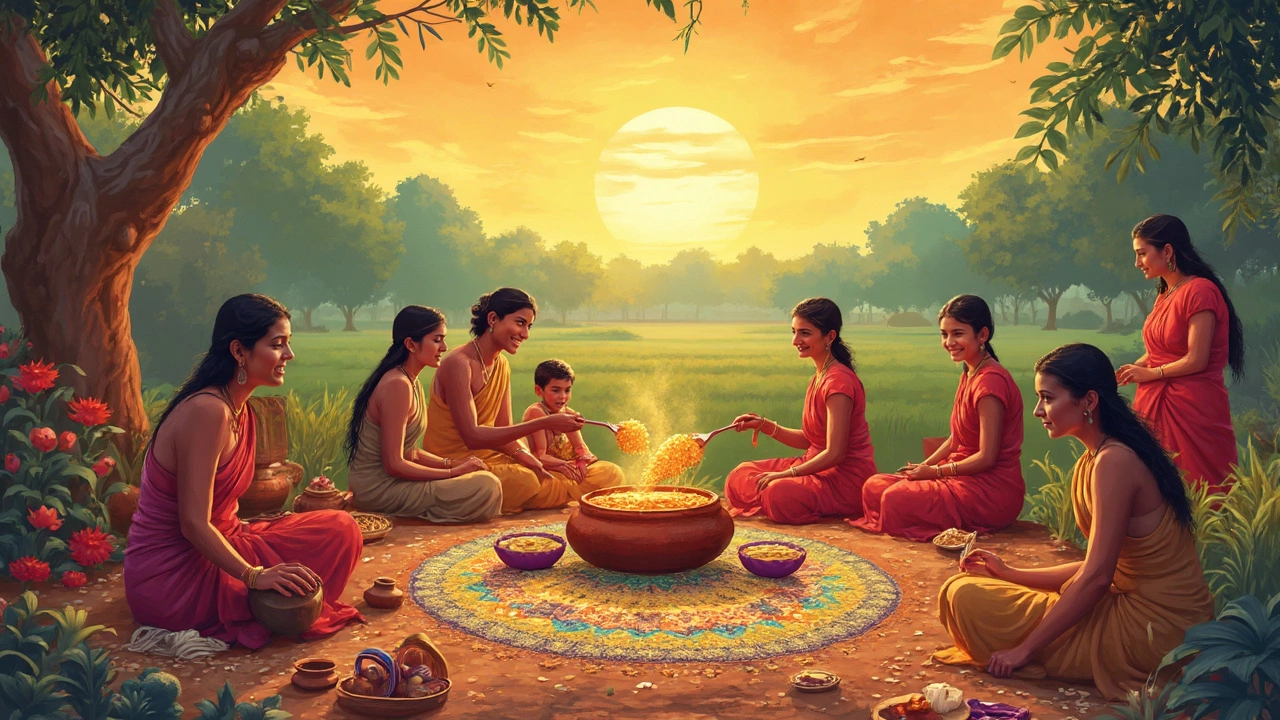Tamil Nadu Festival: Celebrations, Traditions, and What Makes Them Unique
A Tamil Nadu festival, a vibrant blend of ancient rituals, agricultural gratitude, and devotional expression unique to the Tamil-speaking regions of South India. Also known as Tamil cultural festivals, these events aren’t just dates on a calendar—they’re living traditions passed down through generations, where every lamp lit, every dance performed, and every sweet shared carries meaning. Unlike generic holidays, Tamil Nadu festivals tie directly to the land, the seasons, and the divine in ways that feel personal, not performative.
Take Pongal, the four-day harvest festival that marks the sun’s journey into Capricorn and the start of the Tamil month Thai. Also known as Thai Pongal, it’s when families boil the first rice of the season in clay pots, letting it overflow as a symbol of abundance. It’s not just food—it’s a ritual of thanks to the sun, the earth, and cattle that make farming possible. Then there’s Karthigai Deepam, the festival of lights where thousands of oil lamps are lit on rooftops and temple towers, turning entire towns into glowing constellations. Also known as Tamil Diwali, it’s deeply rooted in local legends about Shiva’s infinite form and the triumph of light over darkness—no fireworks needed, just the quiet glow of ghee lamps. These aren’t copy-paste versions of North Indian festivals. They have their own stories, their own rhythms, their own songs.
Behind every lamp and every drumbeat is a deeper layer: Theru Koothu, a raw, energetic folk theatre performed on temple streets, where actors embody gods, demons, and heroes through dance, masks, and improvised dialogue. Also known as street theatre of Tamil Nadu, it’s how myths stay alive—not in books, but in the shouts of crowds and the sweat of performers who’ve trained since childhood. You’ll find similar traditions in the rhythmic clatter of Karakattam dancers balancing pots on their heads, or in the haunting melodies of Puliyattam, where people dress as tigers to honor village deities. These aren’t tourist shows. They’re acts of faith, memory, and identity.
What makes Tamil Nadu festivals different isn’t just the rituals—it’s how they hold space for everyone. Men and women, young and old, rich and poor—all take part in the same dances, eat from the same pots, and light the same lamps. There’s no hierarchy in the glow of a thousand oil lamps. And that’s why, whether you’re in Chennai, Madurai, or a village in the Nilgiris, you’ll feel the same pulse—the same quiet pride in being part of something older than empires, stronger than borders.
Below, you’ll find real stories from people who live these festivals—not just observe them. From how Diwali blends with Karthigai Deepam in Tamil homes, to why certain foods are taboo during Pongal, to the forgotten folk songs that still echo in temple courtyards. This isn’t a list of events. It’s a window into a culture that doesn’t just celebrate—it remembers, rebuilds, and renews itself, one festival at a time.
